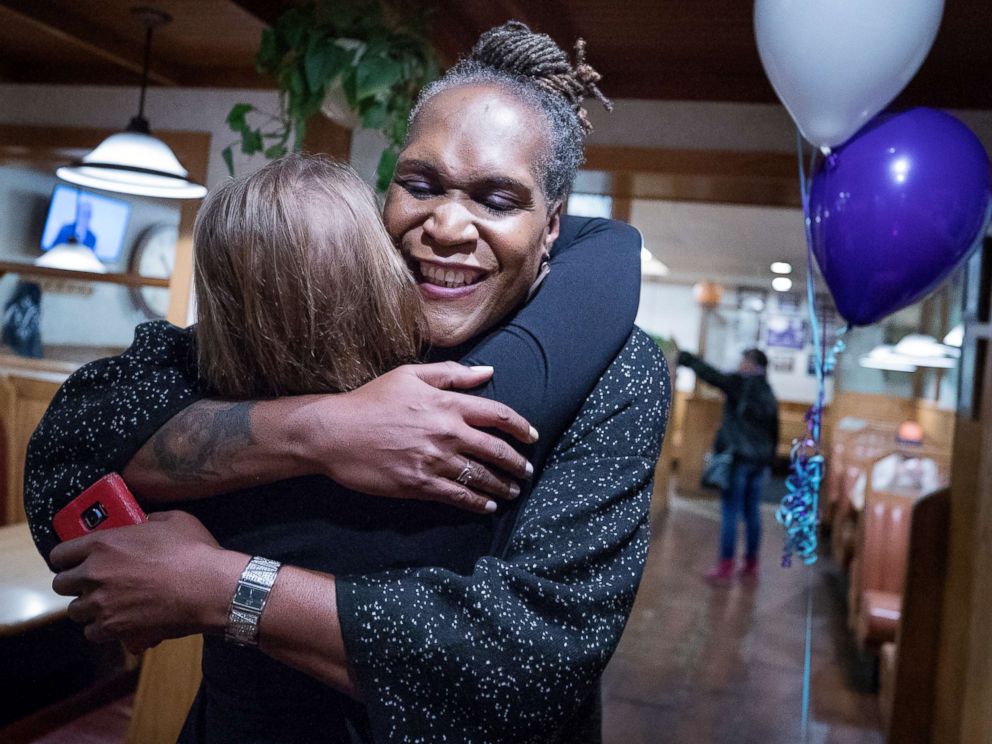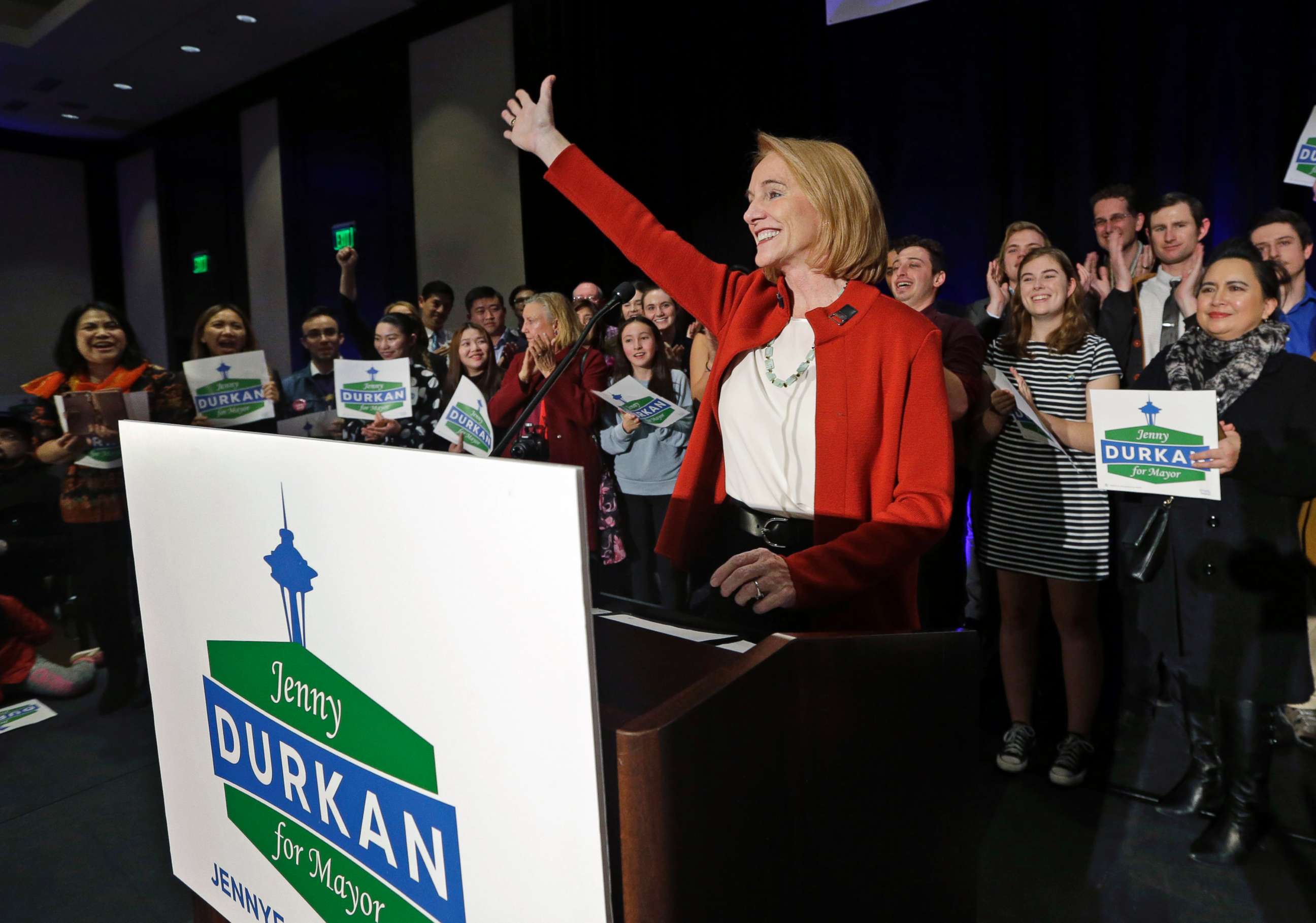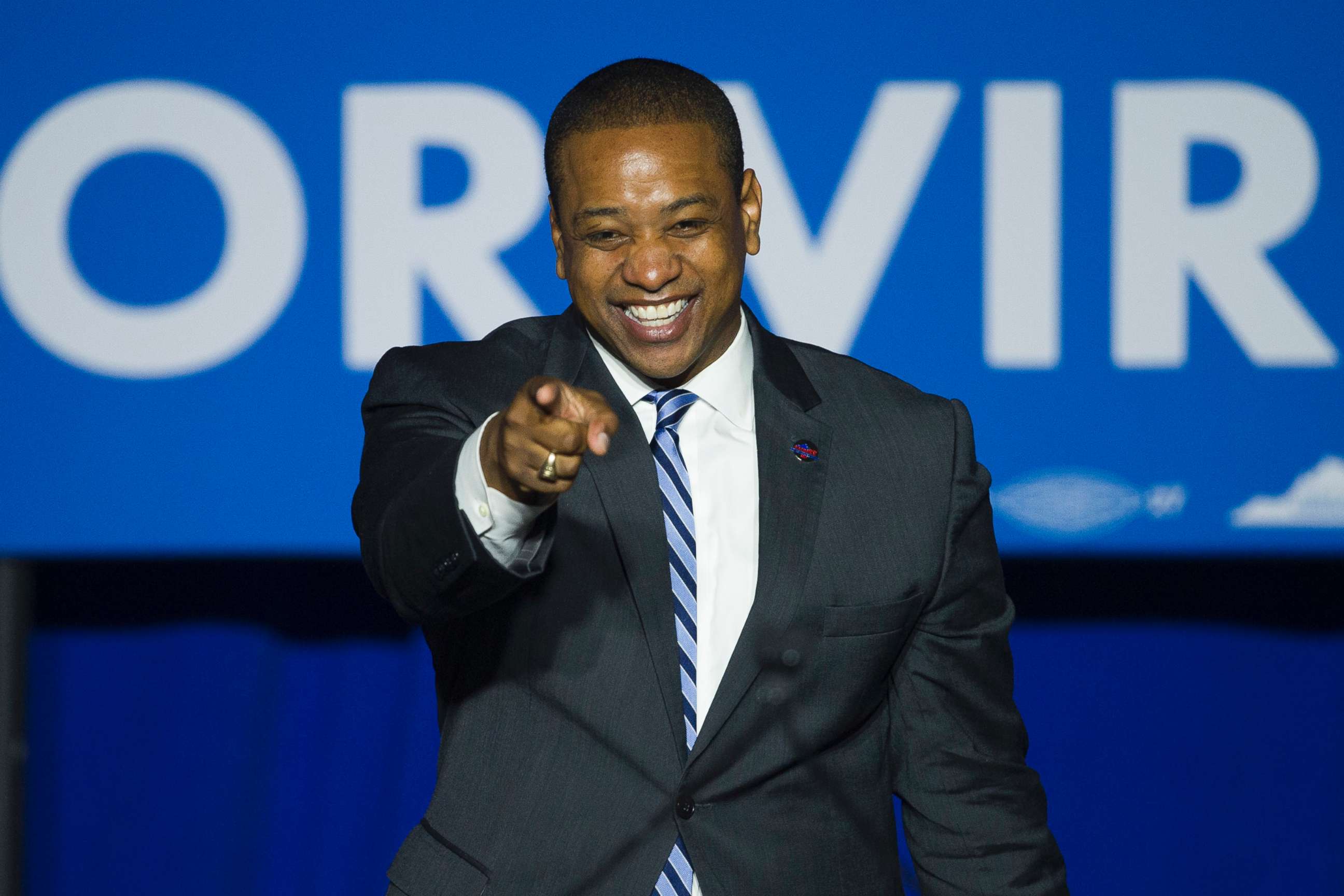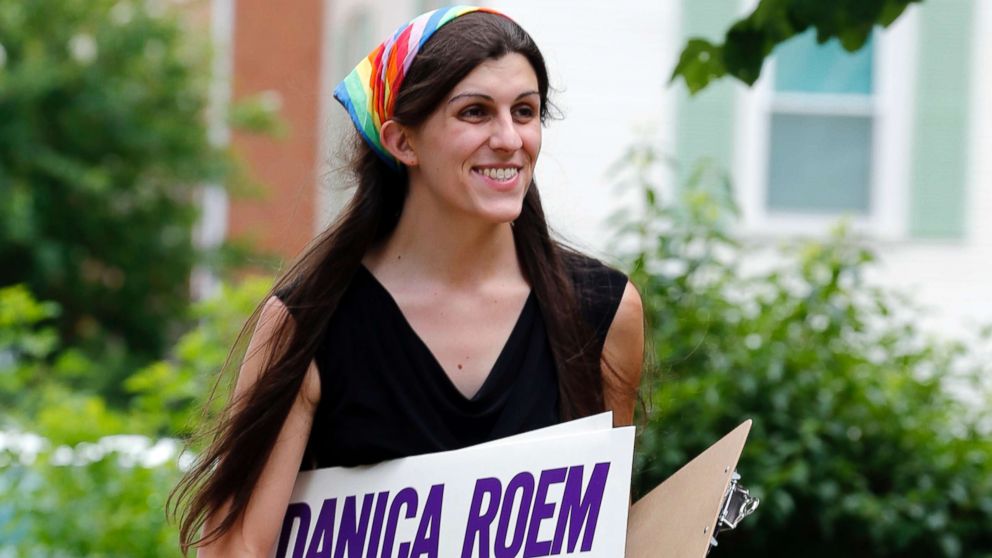Democratic LGBT, other minority candidates see historic wins, but long-term impact on diversity unclear
— -- As Democrats nabbed two major gubernatorial races, Election Day was historic for a number of LGBT and other minority candidates.
Former journalist Danica Roem became the nation's first openly transgender woman elected to a state legislature. Roem unseated Virginia delegate Robert Marshall, who described himself as the state's "chief homophobe" and reportedly referred to Roem during the campaign with male pronouns.
But Roem held steady.
"No matter what you look like, where you come from, how you worship, who you love, how you identify or any other inherent identifier that you have ... if you have good public policy ideas, if you're well qualified for office, bring those ideas to the table, because this is your America too," she said in her victory speech Tuesday night.
Roem added, "Discrimination is a disqualifier."
Andra Gillespie, a political scientist at Emory University in Atlanta, cautioned that such victories in off-year elections might not be an early indicator for the 2018 midterms.
"These elections are notable and noteworthy, but it's going to be years before we know what the long-term impact is on diversifying the candidate pool," she told ABC News today.
In Minneapolis, Andrea Jenkins became the first African-American transgender woman to win a council seat in a major city.

"As an out African-American trans-identified woman, I know firsthand the feeling of being marginalized, left out, thrown under the bus. Those days are over. We don't just want a seat at the table. We want to set the table," Jenkins said in a press release.
She added, "My election is what resistance looks like. It's also about hope."
Out West, Jenny Durkan, who was the first openly gay U.S. attorney, will be Seattle's first openly lesbian mayor.

She was also be the first woman elected mayor there since 1926, when Bertha Knight Landes was elected.
Durkan became the first openly gay U.S. attorney when she was appointed by then-President Obama in 2009 to the Western District of Washington.
Virginia voters sent two Latinas — Elizabeth Guzman and Hala Ayala — and an Asian-American woman, Kathy Tran, to the statehouse for the first time.
Justin Fairfax claimed victory in the state's race for lieutenant governor and is the second African-American man to win a statewide election there. Douglas Wilder, who was elected lieutenant governor in 1985 and governor in 1989, was the first African-American to do so.
"We always have these battles, generation after generation, as to whether or not we're going to rise to the better angels of our nature, to include people, to create opportunity for all, or if we're going to choose to go down a dark political path of discrimination and exclusion, and Virginians consistently rise to the occasion," Fairfax said on "The Kojo Nnamdi Show."

In New Jersey, City Councilman Ravi Bhalla became the state's first Sikh mayor, with his election in Hoboken.
Bhalla's turban-wearing likeness was plastered last week on leaflets under red type reading, "Don't let TERRORISM take over our town!"
"I don't know who put it out, but it's very hurtful," Bhalla, 44, a New Jersey native, told ABC News last week. "My skin is thick at this point … however, this has really impacted my family, especially my daughter."
He tweeted, "Of course this is troubling, but we won't let hate win."
In New Jersey's Atlantic County, Democrat and first-time candidate Ashley Bennett beat Republican John Carman for his seat in the county's legislature, according to The Associated Press. Bennett's decision to run against Carman came after she confronted him about a meme he shared on Facebook in January, which asked whether the Women's March in Washington would be "over in time for them to cook dinner."
"Someone had to run against him, who actually wanted to represent all of the residents in my district, not just men or the special group of women he thought were worthy of his time. And I decided that person should be me," Bennett wrote in a Facebook post from October.
A few mayoral races also made history: In North Carolina, Vi Lyles was elected Charlotte's first female African-American mayor, and in Minnesota, Melvin Carter was elected St. Paul's first African-American mayor.
"You've proven that a woman whose father didn't graduate from high school can become this city's first female African-American mayor," Lyles told her supporters Tuesday night, according to The Charlotte Observer.
ABC News' Kendall Karson contributed to this report.




